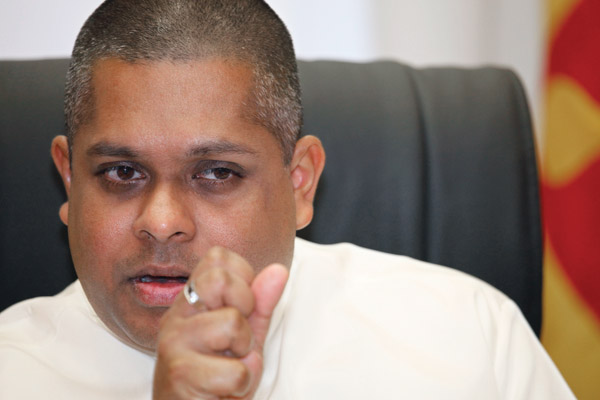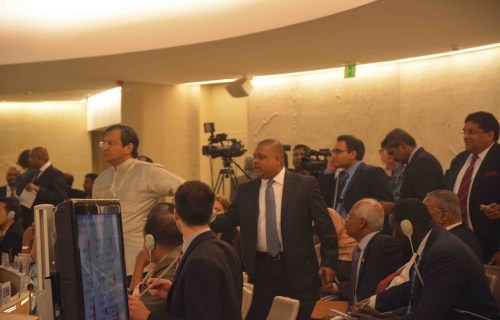
A former Sri Lankan parliamentarian who has lobbied against an international inquiry mechanism into atrocities committed by state forces admitted that “obviously collateral damage” had occurred as the military launched an offensive that killed tens of thousnads of Tamil civilians in 2009.
In an interview with Daily Mirror, Sajin de Vass Gunawardena, a controversial former parliamentarian said “I don’t accept that stand” of the Rajapaksa regime’s “zero casualties” claim.
“Obviously collateral damage is there,” he continued, pointing to the much criticised Paranagama Commission report. “If you take the Paranagama Commission report , it has evidence to 22,000 disappearances into three categories. One category says Army came and took, one says LTTE came and took and another says they don’t know who took. But either way there was camera evidence when they went from village to village of those 22,000 people disappeared. This is something we have to face. The whole problem with human rights is that we are not prepared to face this and put it behind us.”

Gunawardena at the UN Human Rights Council in 2014.
Gunawardena was a monitoring MP in the Foreign Ministry under Mahinda Rajapaksa’s regime during the war and a close friend to the Rajapaksa family. He was part of a Sri Lankan delegation to the UN Human Rights Council in Geneva, as Colombo continued to lobby against an international inquiry mechanism into mass atrocities.
The politician has also criticised the tamil National Alliance in the past and is reported to have assaulted the then Sri Lankan High Commissioner to the UK – delivering a “thundering slap” whilst intoxicated – and was asked by the Daily Mirror of his “thug” reputation.
"I maybe a little arrogant,” admitted Gnawardena. “But that’s my personal nature. I am a little hot-headed. But I have never done any harm to anyone. Absolutely not.”
We need your support
Sri Lanka is one of the most dangerous places in the world to be a journalist. Tamil journalists are particularly at threat, with at least 41 media workers known to have been killed by the Sri Lankan state or its paramilitaries during and after the armed conflict.
Despite the risks, our team on the ground remain committed to providing detailed and accurate reporting of developments in the Tamil homeland, across the island and around the world, as well as providing expert analysis and insight from the Tamil point of view
We need your support in keeping our journalism going. Support our work today.
For more ways to donate visit https://donate.tamilguardian.com.

